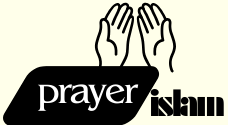In the vast ocean of Islamic prayers, certain supplications stand out due to their profound meanings and significant benefits. One such prayer is the “Rabbana la tuakhizna” dua. This supplication is a heartfelt plea to Allah for mercy, forgiveness, and guidance. In this blog post, we will delve into the depths of this powerful prayer, exploring its meaning, significance, and the best times to recite it.
Rabbana La Tuakhizna | Full Dua in Arabic
Before we explore the meaning and significance of this dua, let’s look at the complete prayer in Arabic:
رَبَّنَا لَا تُؤَاخِذْنَا إِنْ نَسِينَا أَوْ أَخْطَأْنَا رَبَّنَا وَلَا تَحْمِلْ عَلَيْنَا إِصْرًا كَمَا حَمَلْتَهُ عَلَى الَّذِينَ مِنْ قَبْلِنَا رَبَّنَا وَلَا تُحَمِّلْنَا مَا لَا طَاقَةَ لَنَا بِهِ وَاعْفُ عَنَّا وَاغْفِرْ لَنَا وَارْحَمْنَا أَنْتَ مَوْلَانَا فَانْصُرْنَا عَلَى الْقَوْمِ الْكَافِرِينَ
Pronunciation: Rabbana la tuakhizna in nasina aw akhta’na. Rabbana wa la tahmil ‘alayna isran kama hamaltahu ‘ala allatheena min qablina. Rabbana wa la tuhammilna ma la taqata lana bihi wa’fu ‘anna waghfir lana warhamna. Anta mawlana fansurna ‘ala alqawmi alkafireen.
This prayer is often recited by Muslims seeking Allah’s mercy and forgiveness for their mistakes and shortcomings.
Meaning of the Dua Rabbana La Tuakhizna
Understanding the meaning of this dua can enhance the sincerity and depth of our supplication. Here is a translation of the dua in English:
“Our Lord, do not impose blame upon us if we forget or make a mistake and Our Lord, and lay not upon us a burden like that which You laid upon those before us. Our Lord, and burden us not with that which we have no ability to bear. And pardon us; and forgive us; and have mercy upon us. You are our protector, so give us victory over the disbelieving people.”
This prayer is a humble request to Allah for mercy, forgiveness, and protection against burdens too heavy to bear.

Analysis of the Words of the Rabbana La Tuakhizna Prayer
Let’s break down this dua to understand its profound meanings and implications:
- رَبَّنَا لَا تُؤَاخِذْنَا إِنْ نَسِينَا أَوْ أَخْطَأْنَا (Rabbana la tuakhizna in nasina aw akhta’na):
- رَبَّنَا (Rabbana): Our Lord.
- لَا تُؤَاخِذْنَا (la tuakhizna): Do not impose blame upon us.
- إِنْ نَسِينَا أَوْ أَخْطَأْنَا (in nasina aw akhta’na): If we forget or make a mistake.
- رَبَّنَا وَلَا تَحْمِلْ عَلَيْنَا إِصْرًا كَمَا حَمَلْتَهُ عَلَى الَّذِينَ مِنْ قَبْلِنَا (Rabbana wa la tahmil ‘alayna isran kama hamaltahu ‘ala allatheena min qablina):
- رَبَّنَا (Rabbana): Our Lord.
- وَلَا تَحْمِلْ عَلَيْنَا (wa la tahmil ‘alayna): And lay not upon us.
- إِصْرًا (isran): A burden.
- كَمَا حَمَلْتَهُ عَلَى الَّذِينَ مِنْ قَبْلِنَا (kama hamaltahu ‘ala allatheena min qablina): Like that which You laid upon those before us.
- رَبَّنَا وَلَا تُحَمِّلْنَا مَا لَا طَاقَةَ لَنَا بِهِ (Rabbana wa la tuhammilna ma la taqata lana bihi):
- رَبَّنَا (Rabbana): Our Lord.
- وَلَا تُحَمِّلْنَا (wa la tuhammilna): And burden us not.
- مَا لَا طَاقَةَ لَنَا بِهِ (ma la taqata lana bihi): With that which we have no ability to bear.
- وَاعْفُ عَنَّا وَاغْفِرْ لَنَا وَارْحَمْنَا (Wa’fu ‘anna waghfir lana warhamna):
- وَاعْفُ عَنَّا (Wa’fu ‘anna): And pardon us.
- وَاغْفِرْ لَنَا (waghfir lana): And forgive us.
- وَارْحَمْنَا (warhamna): And have mercy upon us.
- أَنْتَ مَوْلَانَا فَانْصُرْنَا عَلَى الْقَوْمِ الْكَافِرِينَ (Anta mawlana fansurna ‘ala alqawmi alkafireen):
- أَنْتَ مَوْلَانَا (Anta mawlana): You are our protector.
- فَانْصُرْنَا عَلَى الْقَوْمِ الْكَافِرِينَ (fansurna ‘ala alqawmi alkafireen): So give us victory over the disbelieving people.
References to Quran and Hadith
The “Rabbana la tuakhizna” dua is derived directly from the Quran, specifically from Surah Al-Baqarah, verse 286:
اللَّهُ لا يُكَلِّفُ نَفْسًا إِلا وُسْعَهَا ۚ لَهَا مَا كَسَبَتْ وَعَلَيْهَا مَا اكْتَسَبَتْ ۗ رَبَّنَا لا تُؤَاخِذْنَا إِنْ نَسِينَا أَوْ أَخْطَأْنَا ۚ رَبَّنَا وَلَا تَحْمِلْ عَلَيْنَا إِصْرًا كَمَا حَمَلْتَهُ عَلَى الَّذِينَ مِنْ قَبْلِنَا ۚ رَبَّنَا وَلَا تُحَمِّلْنَا مَا لَا طَاقَةَ لَنَا بِهِ ۖ وَاعْفُ عَنَّا وَاغْفِرْ لَنَا وَارْحَمْنَا ۚ أَنْتَ مَوْلَانَا فَانْصُرْنَا عَلَى الْقَوْمِ الْكَافِرِينَ
This verse emphasizes Allah’s mercy and the fact that He does not burden a soul beyond its capacity. It is a reminder of the compassionate and forgiving nature of Allah.
Benefits of Rabbana La Tuakhizna Dua
Reciting this dua has numerous spiritual and emotional benefits:
- Seeking Forgiveness: This dua is a powerful tool for seeking Allah’s forgiveness for our mistakes and forgetfulness.
- Relief from Burdens: It is a plea for relief from overwhelming burdens and trials.
- Divine Protection: By asking for Allah’s mercy and pardon, we seek His protection and support in our lives.
- Emotional Comfort: Reciting this dua can provide emotional solace, knowing that we are placing our trust in Allah’s mercy and compassion.
- Spiritual Connection: This supplication strengthens our spiritual connection with Allah, fostering a deeper sense of faith and reliance on Him.
When is it Best to Read Rabbana La Tuakhizna?
The “Rabbana la tuakhizna” dua can be recited at any time, but there are certain moments when it is particularly beneficial:
- During Salah (Prayer): This dua can be included in your daily prayers, especially in the last part of the prayer (Tashahhud) before concluding.
- After Salah: It can also be recited after completing the obligatory prayers as part of your supplications.
- During Times of Distress: When facing difficulties, challenges, or overwhelming burdens, reciting this dua can provide comfort and relief.
- Morning and Evening: Incorporating this dua into your morning and evening adhkar (remembrances) can help start and end your day with a spiritual uplift.
- Special Occasions: During special religious occasions, such as Ramadan, Hajj, or other significant Islamic events, reciting this dua can be particularly impactful.
Summary
The “Rabbana la tuakhizna” dua is a profound supplication that encapsulates the essence of seeking Allah’s mercy, forgiveness, and protection. It is derived from the Quran and holds significant spiritual benefits for those who recite it sincerely. By understanding the meaning and significance of this dua, we can enhance our spiritual connection with Allah and find comfort in His mercy.
Frequently Asked Questions
1. What does “Rabbana la tuakhizna” mean?
The phrase means “Our Lord, do not impose blame upon us if we forget or make a mistake.”
2. Where does this dua come from?
This dua is derived from Surah Al-Baqarah, verse 286 of the Quran.
3. What are the benefits of reciting this dua?
The benefits include seeking Allah’s forgiveness, relief from burdens, divine protection, emotional comfort, and a strengthened spiritual connection with Allah.
4. When is the best time to recite this dua?
It can be recited during and after prayers, during times of distress, in morning and evening remembrances, and on special religious occasions.
5. Can this dua be recited daily?
Yes, incorporating this dua into your daily routine can provide continuous spiritual benefits and strengthen your faith.







